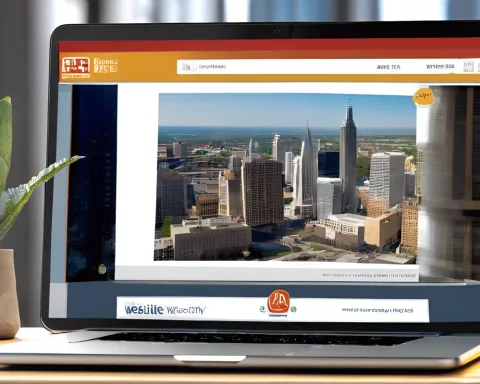Cape Town’s transition to cashless transactions highlights a stark divide between those who can afford digital currency and those who cannot. While cashless transactions offer convenience and efficiency, they are a privilege unavailable universally. The dilemma of the unbanked and the legality of declining banknotes as valid currency raise critical questions that must be addressed to foster equity and accessibility for every citizen in an inclusive financial infrastructure. A truly democratic society requires the elimination of inequality, where banking services are accessible to all, and consumers enjoy a wider range of choices.
Cashless transactions in Cape Town are predominantly a privilege for the affluent. The widespread acceptance of digital currency raises critical questions, such as the legality of declining banknotes as valid currency and excluding those who are ‘unbanked.’ While cashless transactions offer convenience and efficiency, they are a privilege unavailable universally, and a profound re-evaluation is necessary to foster equity and accessibility for every citizen in an inclusive financial infrastructure.
The world of finance is rapidly bidding goodbye to the palpable sensation of cash, welcoming the era of digital transactions. Cape Town, South Africa, is a vivid testament to this transition, with the city’s vibes echoing the silent hum of e-transactions. However, this shift from cash to cashless isn’t just a technological revolution. It underlines a significant social dichotomy, a stark chasm between privilege and deprivation.
Cashless Transactions: A Privilege for the Few
In Cape Town, the domain of cashless transactions is predominantly a bastion for the affluent. For the majority, cash continues to be the primary means for availing goods and services. Specifically, businesses such as restaurants are increasingly embracing cashless payments, owing to their clientele’s preferences, thus further isolating those outside this circle.
Gone are the days when cash reigned supreme, a tangible sign of the government’s pledge to its holder. There was a time when having cash could negotiate hefty discounts, but in today’s digital age, cashless transactions have taken precedence. As a progressively digital society, we can manage our daily affairs without ever needing to open our wallets. We can offer a tip to the car guard via eWallet, reward street performers with a phone tap, and even the local Bangladeshi store owner is now equipped to accept card payments.
The Dilemma of The Unbanked and Legal Tender
However, the widespread acceptance of digital currency raises some critical questions. Is it lawful to decline a banknote as valid currency? Does rejecting cash indirectly enforce the ‘Right of Admission Reserved’, subtly excluding those who, due to their economic situation, remain ‘unbanked’ or lack access to banking facilities?
As we progress into 2024, the predicament of the unbanked in these stringent times is a pressing issue. Countless individuals living in informal settlements are denied access to lending facilities, unable to comply with the Financial Intelligence Centre Act (FICA) regulations. Beyond the dominion of major banks, the only alternatives are hazardous lenders charging exorbitant interest rates, a grim reality in a society marked by significant socio-economic disparity.
An Unequal Consumer Space and the Convenience of Being Cashless
Moreover, the consumer arena has morphed into a monopolistic entity, lacking fair competition. Whether it’s parking fees at tourist spots, movie tickets, or groceries, the conspicuous absence of competition is detrimental to consumers. This scenario screams price gouging and fixing, an issue that should be addressed by political parties genuinely committed to serving the people, not self-enrichment.
Nevertheless, the convenience offered by cashless transactions cannot be denied. Going cashless decreases the risk of theft, a harsh reality in many parts of the country. It streamlines transactions and offers an efficient record of expenditure. Still, this cashless convenience is a privilege unavailable universally.
The Road to a Truly Democratic Society
The establishment of a genuinely democratic society requires the elimination of inequality. It envisages a society where banking services are accessible to all, and consumers enjoy a wider range of choices. It’s a society where everyone can scan, swipe, and tap – a future that seems ironic as we elect our next leaders by making a simple mark on paper with a pen.
Amidst this economic digital divide, a profound re-evaluation is necessary to reimagine democracy in a way that genuinely caters to everyone’s needs. As we race towards the future on a path laden with challenges, it is crucial to steer towards an inclusive financial infrastructure fostering equity and accessibility for every citizen.
1. What is the situation with cashless transactions in Cape Town?
Cashless transactions in Cape Town are predominantly a privilege for the affluent, while cash remains the primary means for availing goods and services for the majority.
2. What are the critical questions raised by the widespread acceptance of digital currency?
The widespread acceptance of digital currency raises critical questions such as the legality of declining banknotes as valid currency and excluding those who are ‘unbanked.’
3. What is the dilemma of the unbanked and legal tender?
The dilemma of the unbanked in these stringent times is a pressing issue, and the legality of declining banknotes as valid currency raises questions about excluding those who lack access to banking facilities.
4. What is the scenario of the consumer space concerning cashless transactions?
The consumer arena has morphed into a monopolistic entity, lacking fair competition, which screams price gouging and fixing.
5. What are the benefits of cashless transactions?
The convenience offered by cashless transactions cannot be denied. Going cashless decreases the risk of theft, streamlines transactions, and offers an efficient record of expenditure.
6. What is the establishment of a truly democratic society?
The establishment of a genuinely democratic society requires the elimination of inequality and the creation of an inclusive financial infrastructure that fosters equity and accessibility for every citizen.












